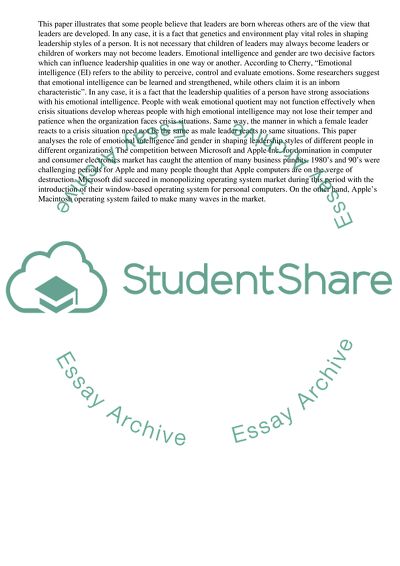Cite this document
(“Role of Emotional Intelligence and Gender in an Organizations Essay”, n.d.)
Role of Emotional Intelligence and Gender in an Organizations Essay. Retrieved from https://studentshare.org/management/1589400-evaluate-the-role-that-both-emotional-intelligence-and-gender-play-in-influencing-an-organisations-leadership-style
Role of Emotional Intelligence and Gender in an Organizations Essay. Retrieved from https://studentshare.org/management/1589400-evaluate-the-role-that-both-emotional-intelligence-and-gender-play-in-influencing-an-organisations-leadership-style
(Role of Emotional Intelligence and Gender in an Organizations Essay)
Role of Emotional Intelligence and Gender in an Organizations Essay. https://studentshare.org/management/1589400-evaluate-the-role-that-both-emotional-intelligence-and-gender-play-in-influencing-an-organisations-leadership-style.
Role of Emotional Intelligence and Gender in an Organizations Essay. https://studentshare.org/management/1589400-evaluate-the-role-that-both-emotional-intelligence-and-gender-play-in-influencing-an-organisations-leadership-style.
“Role of Emotional Intelligence and Gender in an Organizations Essay”, n.d. https://studentshare.org/management/1589400-evaluate-the-role-that-both-emotional-intelligence-and-gender-play-in-influencing-an-organisations-leadership-style.


